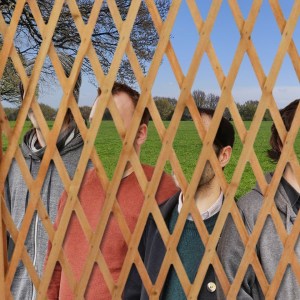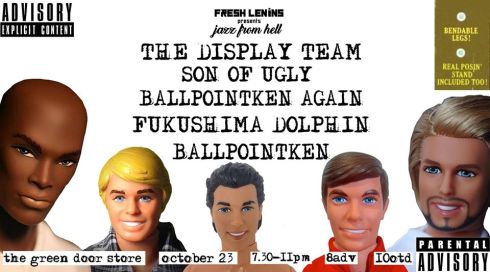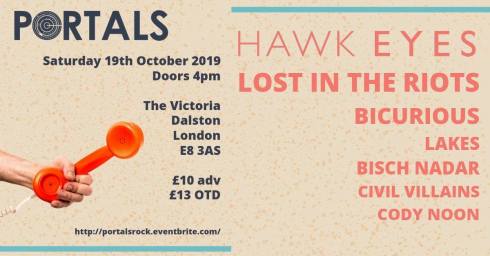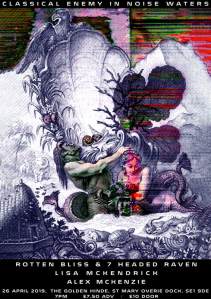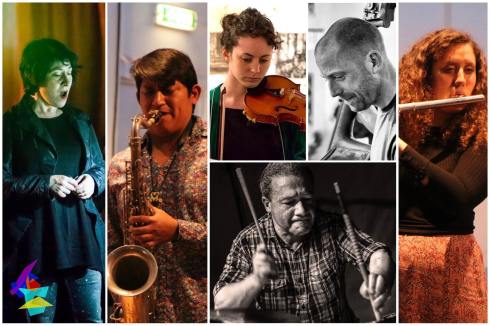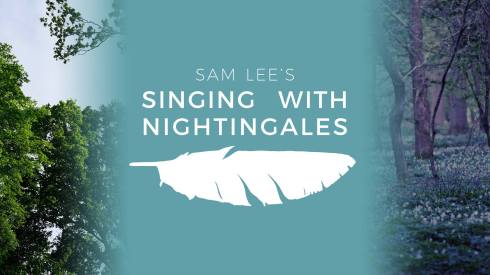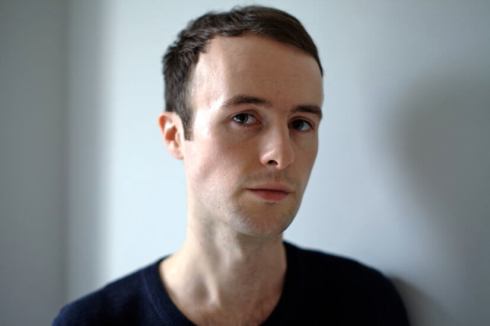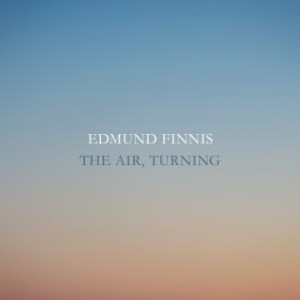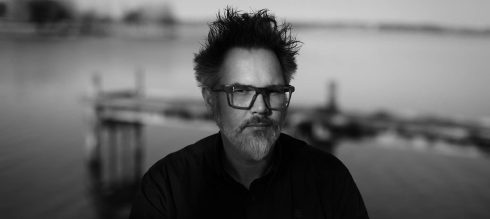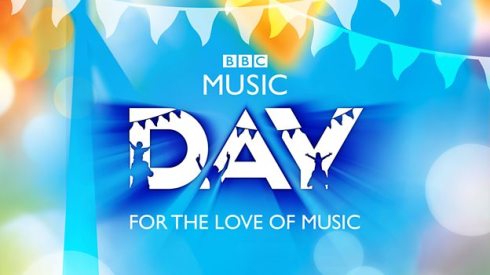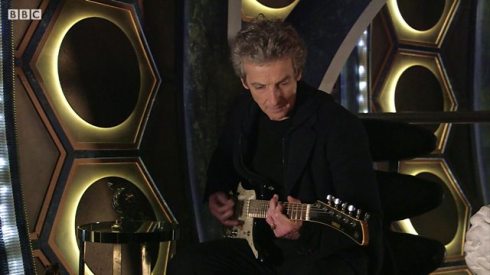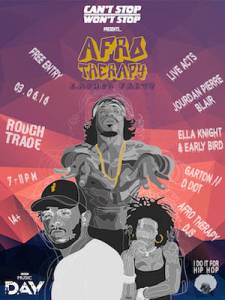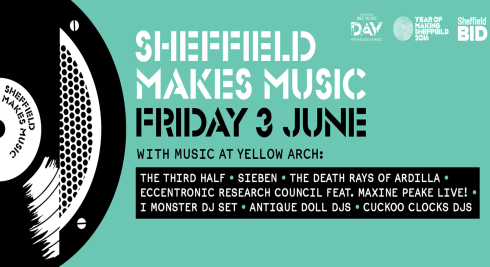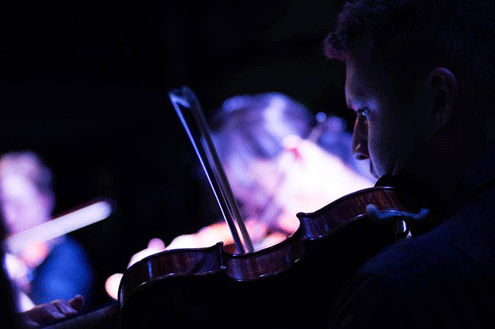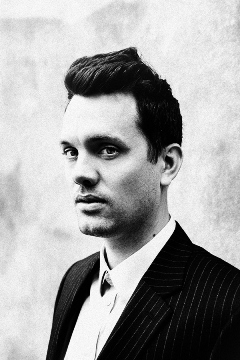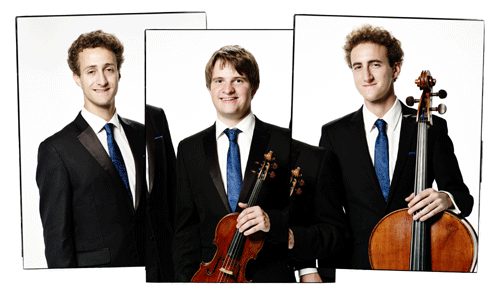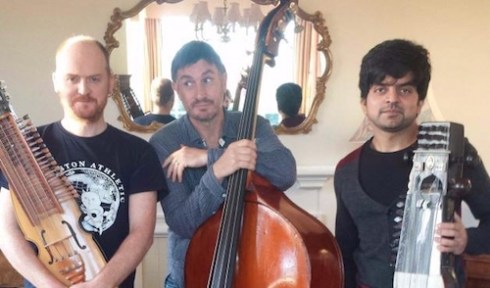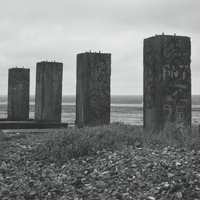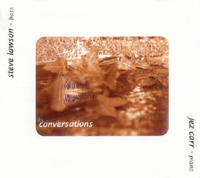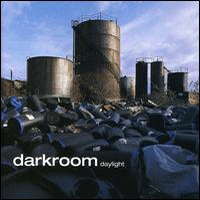A little parable about bigotry from politically-inclined Cambridge pop brain Lizard Brain lays out the nonsense of segregation, and of Jim Crow racism. ‘If Our Eyes Were Blue’ draws heavily on the educational thought experiments of Jane Elliott, in which school classes were divided up purely on the basis of eye colour and then made to act out rules of discrimination, of social caste and of restricted association based on that distinction.
Via archive samples, Jane’s crisp voice punctuates the retro-synth-pop bounce, buzz and beat in which Lizard Brain have chosen to sheath the song; almost in duet with on/off Lizard Brain vocalist Tony Jenkins as she delivers her satirical edicts. “Brown-eyed people are better than blue-eyed people… You blue-eyed people are not to play with the brown-eyed people at any time.” Meanwhile Tony, dreamy and gentle, provides the emotional content, the empathy which soothes the sense of outrage. “Young girl she cries, / tears crystallize… / Can’t understand / the heavy hand / “look at the things they do, / because my eyes are blue”…”
There’s never any question of where Lizard Brain’s own sympathies lie, regarding Jane and her lessons –“She can see the people we should be / and what we all should do.” This is essentially an adjunct to the original experiment, a pop reduction for a classroom singalong. It even ends with a quick sample of Jane proposing the idea of discrimination as fair to her classful of children, and with them resoundingly rejecting it. Unambiguous in its stance – a spelled-out whiteboard lesson rather than a philosophical trick-bag – this might not be exactly what you or I need as adults; but in its ethical straightforwardness it might be exactly what our kids need (assuming that they’ve not already learnt their civics, and they’re not already way ahead of us).
In contrast, ‘Pressure’ – the latest from Swedish production duo Vi. – deals with the problems in being straightforward. Housed in a softly melancholic deep house pop frame, and helmed by singer sam, it dramatizes the feelings of someone wanting to vent deep emotions but being terrified of judgement. Right from the start, it’s rooted in imminent panic (“blurry vision, voices in my mind – wish I could flow the world around me,”) and building angst ( “I got way too many hours on my own, / and I’m not that good at being all alone.”) While sam sings with the abstract tenderness of many a deep-houser, his words ripple with introversion (“searching for a sign / I never really made an effort, / falling back to square one all the time,”) and slip into a chorus like a soft-shoe landslide – “I don’t want to talk about it, it won’t work. / Can’t you see that I have tried it – it gets worse. / Gets better if I keep my feelings to myself. / I shouldn’t bother someone else. / Keep it all to myself, just talk about something else.”
The soundcrafting does what it can to capture this, too. While Vi. have shaped ‘Pressure’ to be a smooth, gently tear-jerking slice of contemporary dance pop (and while they’ve succeeded in this), small production details and club mix tricks give it an edge of subliminal hysteria. The instrumental hook is a glorious yet tissue-thin synth billow, tentatively overwhelming but pulled back. Other parts sometimes come lurching violently out of the mix only to be yanked back immediately. The effect is one of brittle poise being wrecked by rippling tells – one which breaks down into a silky middle eight of impending collapse. “Please don’t do this right now – I don’t wanna see ya. / I’ve been doing all right, / now I’m gonna leave ya – / tryna find a place where I don’t have to hide.”
All of which should lead neatly into Parnell March‘s ‘Therapy’, a rolling spread of analogue EDM in classic Germanic/post-Boards of Canada style; a serenely ecstatic micro-weir of tumbling electronic tones and melody-pulses. But while there’s a voice is there, it’s tweaked beyond recognition by vocoder into an unintelligible but comforting burble. If there’s a message, it’s muffled and medicated; sunny but slimmed; a minimal, murmuring beehive.
In the accompanying video, meanwhile, a sweet little ginger-haired lad grows gradually more disturbed by online imagery and body anxiety, seeking out the services of a series of slick but shallow counsellors before deciding to take matters into his own hands. A thin film of quizzical irony covers the bright, mundane vistas. Therapists nod along sympathetically while covertly buying stock in anti-depressants; there are cameo appearances from a Joe Rogan video and a Jordan Petersen paperback; and even after he tosses his pills down the toilet and hits the road there’s no clear conclusion as to where our boy ends up. For the moment, Parnell seems content to soundtrack the ambiguous anomie of these states of mind – the strange, shallow elations, the papery calm; the gentle manic high and the buried rumble; the vacant reverb behind the day-to-day noise.
Lizard Brain: ‘If Our Eyes Were Blue’
German Shepherd Records (no catalogue number or barcode)
Download/streaming single
Released: 9th July 2021
Get/stream it from:
Bandcamp, Apple Music, Spotify, Amazon Music
Lizard Brain online:
Homepage, Facebook, Twitter, Soundcloud, Bandcamp, Apple Music, YouTube, Spotify, Amazon Music,
Vi. & sam: ‘Pressure’
ART:ERY Music Group (no catalogue number or barcode)
Download/streaming single
Released: 9th July 2021
Get/stream it from:
Soundcloud, YouTube, Spotify, Tidal, Amazon Music
Vi. online:
Homepage, Soundcloud, Apple Music, YouTube, Spotify, Tidal, Instagram, Amazon Music
Parnell March: ‘Therapy’
Uncle Herb Recordings (no catalogue number or barcode)
Download/streaming single
Released: 9th July 2021
Get/stream it from:
Soundcloud, Bandcamp, Apple Music, YouTube, Spotify
Parnell March online:
Facebook, Soundcloud, Bandcamp, Apple Music, YouTube, Spotify

